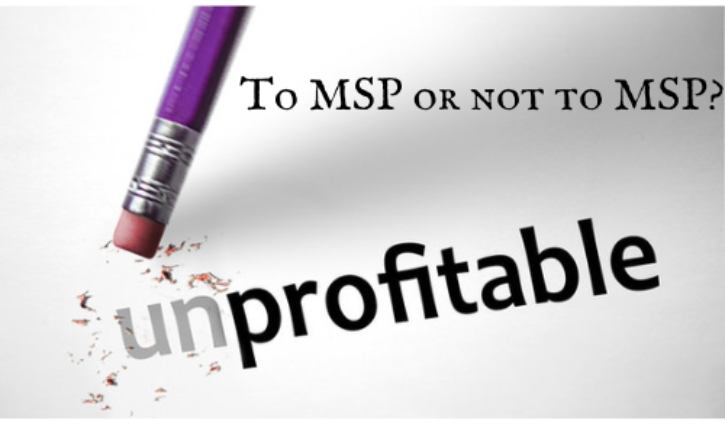Understanding the latest market trends is key to success in IT staffing and engineering staffing. One trend of note is the 2024 resurgent M&A market and the factors that drive strong valuations for staffing firms.
Experts in the field, John Larson, Steve Norris, and Martin Borosko, provide invaluable insights into the current state of mergers and acquisitions (M&A) in this sector, including the key drivers behind higher valuations and strategic considerations that are important for buyers as well as sellers entering this vibrant market.
The M&A Market Outlook 2024
In 2023, the M&A market for IT staffing and engineering staffing firms experienced a downturn. However, 2024 is shaping up to be a robust year for sellers. Larson emphasized the current imbalance in the marketplace, where there are significantly more buyers than sellers.
This disparity has led to multiple offers for available firms, which has pushed up valuations.
“There’s really an imbalance in the marketplace today with many buyers and few sellers, and as a result of that, we see sellers receiving multiple offers when they do come to market,” Larson notes.
Norris echoes this sentiment by stating, “We have so many buyers that are calling us every day saying, what have you got? Do you have anything else that has come onto the market?”
The Drivers of Elevated Valuations
What’s causing these changing dynamics? There are three main drivers:
1. Supply and Demand Dynamics
The primary driver of higher valuations is the imbalance between supply and demand. With over 125 prospective buyers in the TechServe M&A Marketplace Program, there is intense competition for available firms. This competition is beneficial for sellers, especially those in the “sweet spot,” who are experiencing frenzied bidding similar to the peaks seen in 2021 and 2022.
2. Programmatic Acquisitions
Another strong driver is programmatic acquisitions. Why is that? Programmatic acquisitions, where companies strategically and consistently acquire others, have been identified as the most successful growth strategy across various industries.
Studies by McKinsey and Bain confirm that firms following this strategy outperform those relying solely on organic growth or opportunistic acquisitions. Borosko states that “programmatic acquisitions outperform all others, leveraging geographic growth and vertical alignment.”
3. Platform Staffing
The industry has shifted from opening physical offices to a more centralized, technology-driven model known as platform staffing. This model is highly scalable. It allows firms to grow without significant incremental costs. This makes it attractive to financial buyers. “Platform staffing allows for scaling without significant incremental costs,” Borosko adds.
How Can You Attract Buyers?
Let’s take a look at some M&A best practices – the things that really make a company stand out to buyers in the M&A market, according to the experts:
1. Revenue and Income Growth
Consistent revenue and operating income growth are essential for attracting buyers. Buyers typically examine trends over the past three to five years to assess a company’s performance.
2. Gross Profit Alignment
Aligning gross profit with buyer expectations is essential. Buyers look for companies whose profit margins align with or improve their own financial profiles.
3. Sales and Delivery Processes
The compatibility of sales and delivery processes between the buyer and seller is another critical factor. Whether a company uses split desks, full desks, onshore, offshore, or blended recruiting models, the alignment with the buyer’s processes can significantly impact the attractiveness of the acquisition.
4. Client Diversification
Low client concentration is highly favorable. Buyers prefer firms where no single client accounts for more than 20% of revenue, as this reduces risk and indicates a stable client base. A diversified client portfolio ensures that the business is not overly dependent on any single client, mitigating potential risks associated with client turnover.
5. Preference for Contract Staffing
Buyers prefer firms with a majority focus on contract staffing over direct hire. W2 consultants are generally favored over Corp-to-Corp (C2C) and 1099 arrangements due to perceived control and compliance benefits.
How Can You Reduce Post-Transaction Risks?
Mitigating risk is very important for fetching higher valuations. Conducting compliance audits before entering the market helps address potential transaction issues ahead of time.
Borosko emphasizes that “cleaner companies fetch higher values and reduce post-transaction risks.”
That means: By making sure that your company’s operations are clean and compliant, you can increase buyer confidence and reduce the likelihood of post-transaction disputes or complications.
Recent Changes in Transaction Terms
Recent trends indicate a shift towards more cash at closing and shorter periods of deferred consideration. This change benefits sellers by providing immediate liquidity and reducing the risk associated with deferred payments. For sellers, this means faster access to funds and less worry about the future performance of the buyer.
Additionally, detailed representations about data security and privacy are becoming more common in IT and engineering transactions. These representations protect both parties by clearly outlining responsibilities and expectations regarding data handling.
How to Plan for a Smooth Owner/Founder Transition
For a smooth transition and continuity, it is preferable for the owner/founder not to be the primary client contact. This can help guarantee that client relationships remain strong even after the owner steps away.
Assigning account executives to manage primary client relationships can mitigate buyer concerns about the potential loss of key accounts post-transaction. Norris advises: “Assign account execs to your top accounts if you are the owner and still the main primary contact.”
By doing so, you demonstrate to potential buyers that your business can continue to thrive independently of your direct involvement, which can significantly enhance the attractiveness of your company.
What Are Current and Future M&A Trends?
What does the future look like? The M&A market remains favorable for sellers despite broader economic challenges. This optimism stems from buyers viewing the current downturn as cyclical rather than structural, meaning they believe the market will recover and grow. Buyers are willing to invest in the industry.
Potential changes in capital gains tax rates after 2025 may also influence sellers to act sooner rather than later. Sellers should consider these factors and plan their strategies accordingly to maximize their benefits. Acting sooner rather than later might be advantageous to avoid potential increases in tax rates.
Our Tips for Success in the M&A Market
Here’s the reality: it takes careful planning and understanding of market trends to successfully navigate the mergers and acquisitions (M&A) market. The good news is that IT staffing and engineering staffing firms can benefit from the current favorable conditions. How so? By being well-prepared and meeting buyer expectations.
If you are a seller, you should focus on understanding the market dynamics, such as the high demand for firms and the benefits of programmatic acquisitions. Addressing risk factors and having a clear strategy will go a long way.
Don’t forget that keeping operations clean and ready for scrutiny, as well as planning for smooth ownership transitions, can make a firm much more attractive to buyers. By following these M&A strategies, your firm will be equipped to achieve high valuations and successful deals in the 2024 M&A market.












